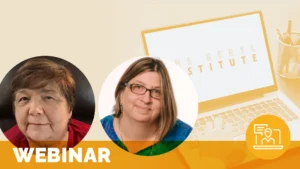What is social prescribing?

Prince Taylor, Deputy Director, VA Center for Development and Civic Engagement, discusses loneliness and its negative impact on our health and how social prescribing can change provide non-medical intervention and positively effect patient outcomes.
Related content
-
 Patient Family & Community Engagement
Patient Family & Community EngagementPatient Engagement and Co-creation in Healthcare Services: A Scoping Review
Objective: The objective of this review was to find literature related to the concepts of patient engagement and co-creation in healthcare services and identify models and/or frameworks that combined these concepts. Methods: We developed the eligibility criteria using the Population-Concept-Context framework applicable to studies with population of patients exploring the concepts of engagement and co-creation
Learn more -
 Patient Family & Community Engagement | Staff & Provider Engagement
Patient Family & Community Engagement | Staff & Provider EngagementCo-Creating Change Using Storytelling
During this webinar members of the Global Patient and Family Advisory Board (GPFAB) will demonstrate how telling stories instead of creating guidelines for healthcare professionals will improve patient outcomes. The GPFAB has created a unique storytelling guide that will help healthcare professionals understand the principles of sharing patient/care partner lived experience through storytelling and how
Learn more -
 Patient Family & Community Engagement
Patient Family & Community EngagementPX Chat on PFA/PFACS: New/Getting Started (August 6, 2025)
12pm ET / 11am CT / 10am MT / 9am PT – Join The Beryl Institute community for an opportunity to connect with your peers on the support and resources needed to address efforts around new and getting started with PFAs and PFACs in their organizations. Breakout discussion groups allow you to share your challenges,
Learn more
